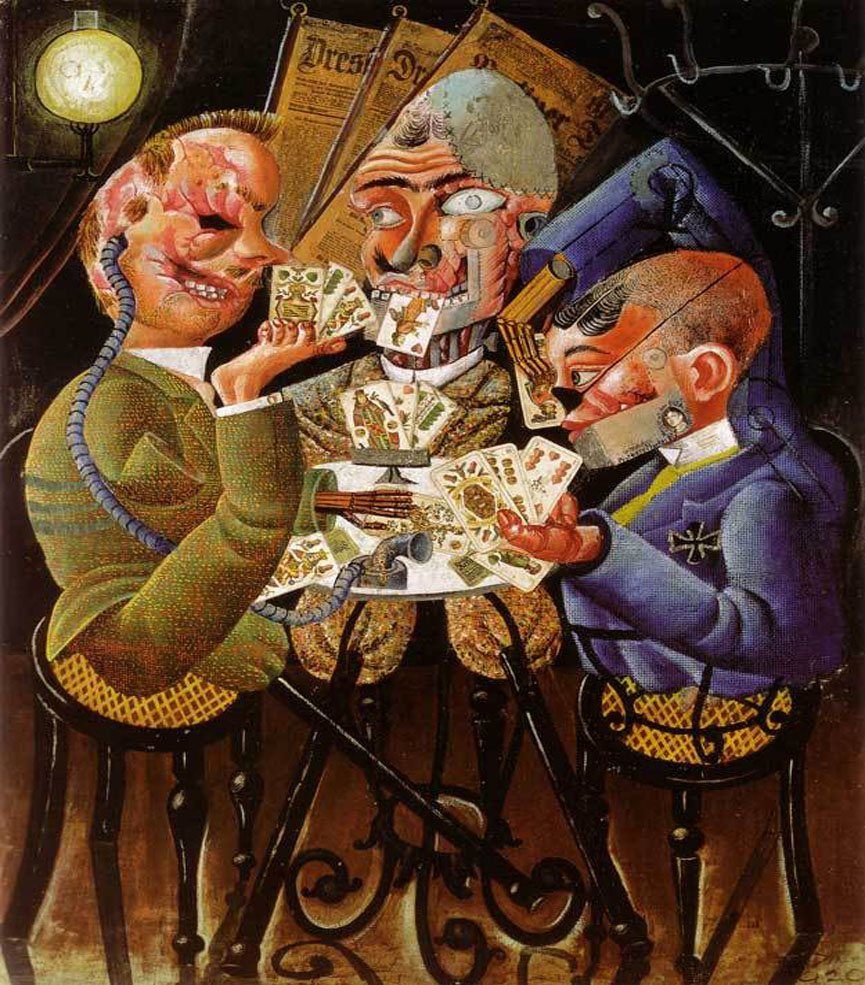In the study of human language, the oldest and most fundamental distinction is between sign, meaning and referent. A sign is a sign, visual, sound or any other that indicates an idea, an intention, and represents it in the mental sphere. A meaning is a set of signs that expresses the subjective intention contained in the sign. Referent is the object, the thing, the element of the real world—objective or subjective—to which the meaning, and therefore also the sign, refers. If a subject knows by heart the definition of “cow,” but, when we show him a cow, he can’t distinguish it from an armadillo, a matchbox or an atomic reactor, the sign he used corresponds only to a meaning, a subjective intention, but to no element of reality.
In political discussion, and in journalistic language in general, the use of meaning without referents is a self-hypnotic habit by which the sender of the message persuades himself and his audience that he is saying something when he is saying absolutely nothing.
Whether he does this out of ignorance or malice is indifferent—for malice is nothing more than feigned or planned ignorance.
One of the most characteristic examples is the current, omnipresent and obsessive use of the expression “democratic institutions.” This is understood to mean the entities and institutions founded on laws and constitutions that institute the representative system, as well as the rule of law that controls it. It is understood that this expression defines a thing called “democracy,” differentiating it from dictatorial, tyrannical or authoritarian regimes, where rulers who represent only themselves do as they please and are subject to no law whatsoever. In Brazil, the defenders of “democratic institutions” present themselves as protectors of freedom and of the people, in opposition to the supporters of a “military dictatorship,” represented, it is said, by the current president of the republic, his sons, friends and supporters.
So far, everything is very clear, but with this conversation we don’t leave the realm of verbal meanings. We don’t touch the referent. If we now look for the entities of reality that ordinary language associates with these terms, we find them nowhere. First of all, the supporters of the “dictatorship” that they also call “military intervention” or even “constitutional military intervention” do exist; but they are rare and have not the slightest influence over the mass of the president’s supporters, who present themselves as a mass firmly resolved to fight for their own objectives, supporting the president, to be sure, but without receiving from him even an instruction or a word of an order, let alone a voice of command.
This means that when they present themselves as defenders of “democracy” against the danger of “military authoritarianism,” the supporters of “democratic institutions” pretend to fight an imaginary enemy in order not to have to declare which real enemy they are fighting and wish to destroy. This enemy is not any “dictatorship,” but the popular mass, the populist indignation that occupies the streets and wishes to impose its sovereign will on the political, journalistic and university minority of “defenders of democracy,” as well as on the eventual apostles of the “dictatorship.”
But democracy, unless I am mistaken, is not defined by the presence of such or such “institutions,” but by being “the government of the people, by the people, and for the people;” that is, the government in which the institutions, whatever they may be, are under the control of the people and not the people under their control.
When they turn against the masses of the people in the name of “democratic institutions,” the advocates of the latter are simply reversing the meaning of democracy, making it the absolute empire of “institutions” under which the people have and can have no power and no means of action. No wonder that, on his release from jail, the highest apostle of “democratic institutions” and sworn enemy of “fascist authoritarianism,” Mr. Luiz Inácio Lula da Silva, finds no popular support and seeks instead the support of the military class, the personification of “dictatorship.”
The language of Brazilian public debates is a set of psychotic inversions in which each speaker tries to deceive himself in order to better deceive others.
Olavo de Carvalho (1947-2022) was a Brazilian philosopher who lived in the United States. His books cover a wide array of topics, including Aristotle, Descartes, Saint Augustine, Saint Thomas Aquinas, and Christian philosophy. For his work, he was honored with the Grand Cross of the Rio Branco Order, Brazil’s highest award, by President Jair Bolsonaro. His most recent book in English is Machiavelli or the Demonic Confusion.
Featured image: “Skat Players,” by Otto Dix; painted in 1920.
